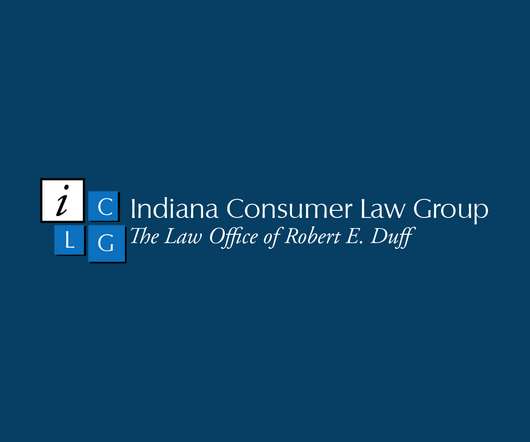Financial Center First Credit Union Repossession
Indiana Consumer Law Group
MARCH 24, 2022
Indiana Consumer Law Group announces the filing of a lawsuit against Financial Center First Credit Union, a credit union located in Indianapolis, Indiana. The lawsuit alleges that Financial Center First Credit Union repossessed our client’s car. The case is being brought as a class action.












Let's personalize your content